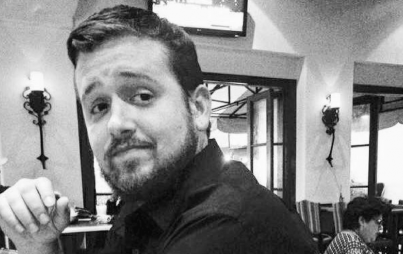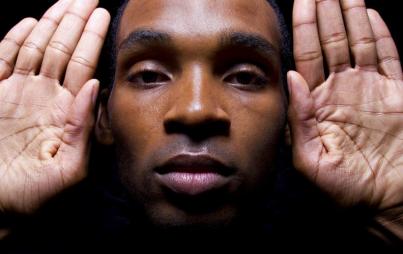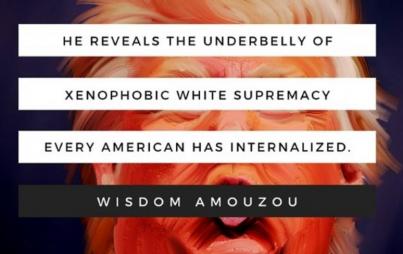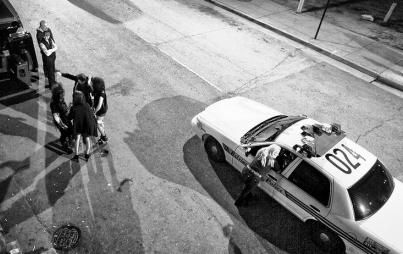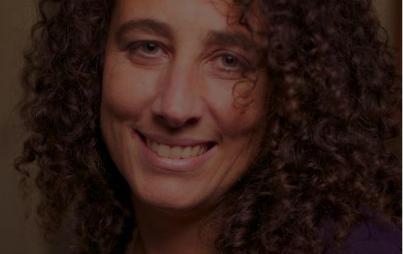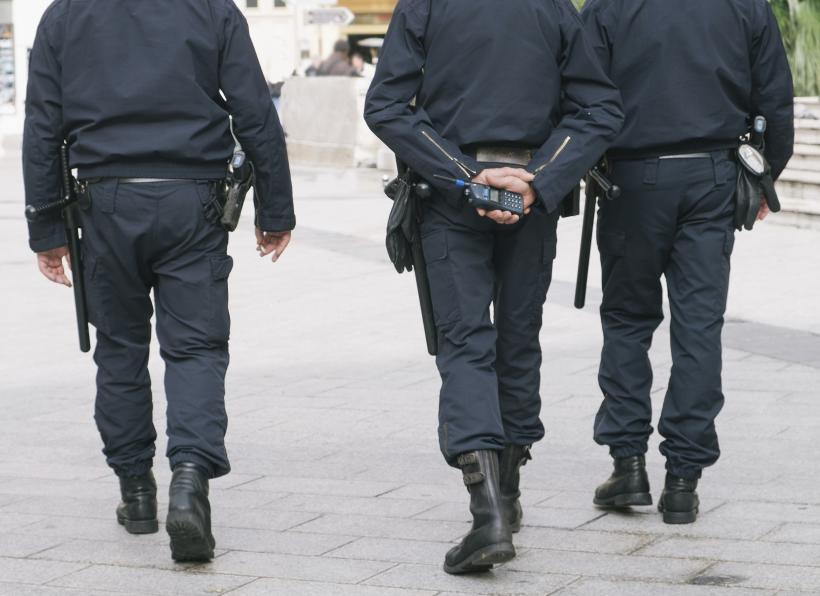
Thinkstock
This past Saturday, a police watchdog group (El Grito de Sunset Park) in the Sunset Park neighborhood of Brooklyn, New York released a disturbing—if ambiguous—video of the NYPD shoving 44-year-old Sandra Amezquita, a visibly pregnant woman, face-down onto the ground and then sitting on her as a form of restraint.
The story goes that around 2:15 am this past Saturday, two officers on patrol approached Amezquita's son, Jhohan Lemos, near the intersection of 5th avenue and 40th street because he was acting "suspiciously." (Whatever the hell that means.) When the officers got closer, they noticed the 17-year-old had a gravity knife—the kind you flick out from its handle with a snap of the wrist—clipped to the right front pocket of his pants. The fact that "gravity knives" were sold in places like EMS, Home Depot and Paragon Sports as standard hunting and camping gear up until about four years ago raises the question of if Lemos was even aware what he was doing was illegal . . . as does the fact that Lemos had it openly visible, rather than trying to hide it.
When the police attempted to arrest Lemos, he resisted arrest, and began sprinting down the street; he was apprehended about a block later. What remains a bit muddy is the escalation of the situation that resulted in the utterly haunting visual of a pregnant women being forcibly restrained belly-down. Witnesses say both Lemos' father and mother were interfering with what was an unnecessarily aggressive arrest—photographs of Lemos' face show cuts and intense bruising.
Police say that while they were attempting to arrest Lemos, his father Ronel, 50, and another local resident, Secundin Payamps, 46, attacked the officers, throwing one to the ground and repeatedly punching him. In this miserable melee, Amezquita was wrestled to the ground and possibly tasered. She's gone on record to say she's experienced vaginal bleeding, and has bruises all over her stomach.
“The first thing I thought was they killed my baby and they’re going to kill my wife,” Lemos told the Daily News.
It's pretty sickening stuff and comes hot on the heels of another alleged incident of police brutality in the same neighborhood at a street fair. Not surprisingly, these two incidents mark an increased tension between the Latin American community and law enforcement.
Dennis Flores, founder of El Grito de Sunset Park, insists that residents live in chronic fear and mistrust of the police, who have supposedly been unduly cracking down on petty crime with misplaced vigilance and undue physical aggression. He claims people have begun to avoid congregating with friends outside or openly participating in Latin American-themed celebrations, as their ethnicity has made them targets.
“There’s excessive force being used to come down on small, qualify-of-life concerns,” said Flores. "[The officers] feel like they’re above the law.”
The NYPD, however, argues that the crackdown on what's perceived as "petty crime"—like carrying an illicit knife—is part and parcel of the much larger, over-arching effort to subscribe to the "broken window" theory, first introduced in 1982 by social scientists James Wilson and George Kelling.
This theory posits a strange metaphor: There's a house and it has two broken windows. If you don't fix said windows, people start throwing bricks through the other windows. Then they start graffitting it. Then squatters move in and set the whole place on fire . . . you get the idea. If you don't punish pretty crimes—like jumping turnstiles or carrying a knife—the whole city will devolve into depravity.
Meanwhile, the whole depressing incident raises questions about one of the most controversial initiatives in law enforcement history: stop-and-frisk.
The Dawn Of An Enduring Controversy
In 1990, America saw the highest crime year in the history of our country, according to Reuters. The NYPD alone reported 2,245 homicides, 3,126 rapes, 100,280 robberies and 68,891 aggravated assaults. Lauded by former NYC mayor Rudy Guiliani and William J. Bratton, New York City Police Commissioner, as part of Guiliani's "no tolerance" policy and city-wide aggressive clean-up, stop-and-frisk saw a sharp uptick. The controversy raging around the practice has only increased over the past three decades—with accusations of sanctioned racial profiling reaching a fever-pitch every time a case like Amezquita's rears its ugly head.
And rightly so.
While the dawn of stop-and-frisk dramatically decreased crime city-wide, there was also a staggering rise in misdemeanor arrests and a socio-cultural fallout that's never been regained; everyone knows the black and Latino communities are being disproportionately stopped, breeding mistrust, simmering anger and the inescapable sensation that everyone's "safety" is being borne on the back of sanctioned racism. Heather MacDonald, fellow at the Manhattan Institute, argues it's simply the lesser of two evils:
"One purpose of stop and frisk is to deter criminals from carrying guns, in order to minimize spur-of-the-moment shootings. That deterrence has taken place. Street gangs now keep “community guns” in communal locations rather than on their person, to avoid a gun possession arrest if they are stopped. The city’s astounding homicide drop — 82 percent from 1990 to 2009 — is driven by a decline in gun crime, which disproportionately affects black males. In 2011, guns were used in 61 percent of all homicides, but 86 percent of black males between the ages of 16 and 21 killed that year died from gunfire, according to N.Y.P.D. data.
Being stopped when you are innocent is an infuriating, humiliating experience. New York’s officers need to better explain to stop subjects why they were accosted. And if a more powerful method of deterring crime is developed, the N.Y.P.D. should and would adopt it. But for now, New York’s most vulnerable residents enjoy a freedom from assault unknown in any other big city, thanks to the N.Y.P.D.’s assertive style of policing." —To See Its Value, See How Crime Rose Elsewhere, New York Times
The New York Civil Liberties Union, however, believes that the NYPD's policies are in gross violation of our rights:
"The NYPD’s stop-and-frisk practices raise serious concerns over racial profiling, illegal stops and privacy rights . . . New Yorkers have been subjected to police stops and street interrogations more than 5 million times since 2002, and that black and Latino communities continue to be the overwhelming target of these tactics. Nearly nine out of 10 stopped-and-frisked New Yorkers have been completely innocent."
In 2011 alone, the police made 685,724 stops:
—605,328 were totally innocent (88 percent)
—350,743 were black (53 percent)
—223,740 were Latino (34 percent)
—61,805 were white (9 percent)
—341,581 were aged 14-24 (51 percent)
These numbers, like many, only reveal a small slice of a very long and complicated story. The rest of the tale is often found in cases like Lemos', which reminds is there are actual people affected by these policies. The sliver of a silver lining in this story is that we're all talking about the not-so-latent racism embedded in this longstanding initiative and police brutality in general. But sadly, even with how harrowing it all is (it's a pregnant woman for god's sake, is nothing sacred?), it all still feels like deja vu.

